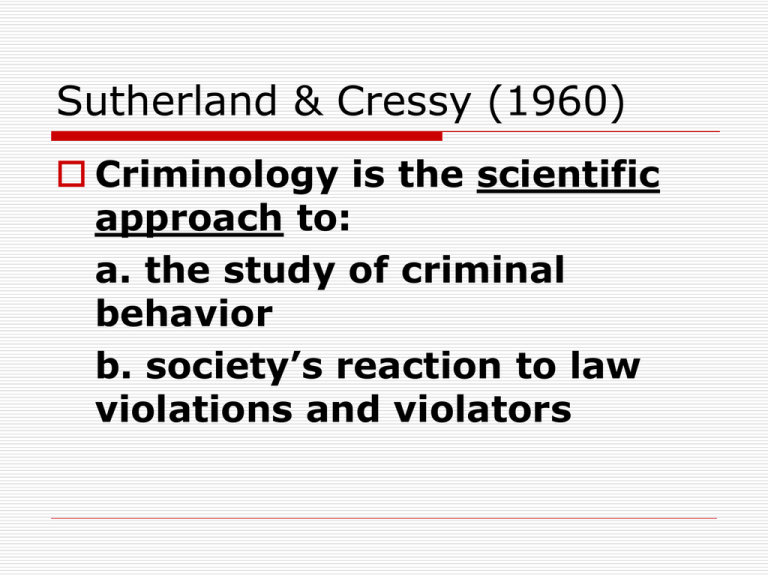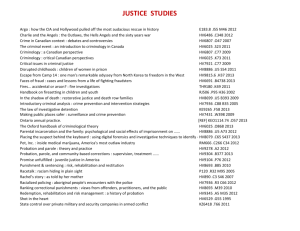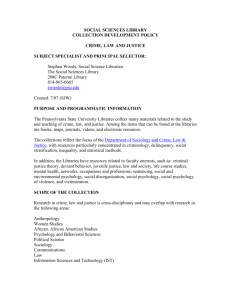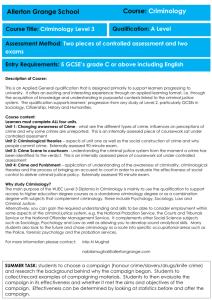Sutherland & Cressy (1960)
advertisement

Sutherland & Cressy (1960) Criminology is the scientific approach to: a. the study of criminal behavior b. society’s reaction to law violations and violators Criminology vs. Criminal Justice Criminal Justice The Study of Agencies Related to the Control of Crime Criminology The study of crime trends, nature of crime,theories of crime Who Cares? Mostly pointy headed academics. Criminology vs. Deviance Criminology Focuses on Crimes Crime = violation of criminal law Deviance Focuses on Violations of Societal Norms These may or may not also be law violations Criminology as a Discipline Until recently, (1970s) there was no such thing as a degree in “criminology” or “criminal justice.” 1900s-1970s: Degree in sociology or urban studies (emphasis on crime). Implication? Sociology dominates. A Crude History of Criminology Middle Ages Superstition, religion, and fear Classical School (1750s-1900) Utilitarian philosophy of (Becarria) Free Will, Hedonistic Calculus Positive School (1900-present) Bio/psych determinism (1900-1920s) Lombroso’s “Ativism” Intelligence, Personality Crude History—Part II Sociological theory (1920s-Present) Durkheim, Merton Political philosophy (1960s-early 1970s) (Marx) Neo-classical (Late 1970s-1990s) Currently? Developmental Theory (interdisciplinary) Categories of Contemporary Crime Theory Psychological Theory Choice Theory Biosocial Lifecourse Theory Criminal Behavior Theory Social Conflict Process Social Theory Structural Theory Theory Sub-Areas in the field of Criminology/Criminal Justice Criminal Statistics (gather/interpret the facts) Sociology of Law (how and why law changes) Theory Construction (why people commit crimes) Penology (prison, rehabilitation, policing) Victimology (who gets victimized, how?) Differing views on the causes and controls of criminal behavior Consensus View Law defines crime; Agreement exists on outlawed behavior Laws apply to all citizens equally Conflict view Law is a tool of the ruling class (to control the underclass) Crime is a politically defined concept Interactionist Moral entrepreneurs define crime Crimes are illegal because society defines them that way Criminal labels are life-transforming events Doing Criminology: Types of Research Survey Research (cross-sectional research) Longitudinal Research (cohort groups) Experimental Research Aggregate Data Research Observational Research Ethics in research! Political Viewpoints and Criminal Justice Funding Sources Political and Social Consequences of Findings/Results







